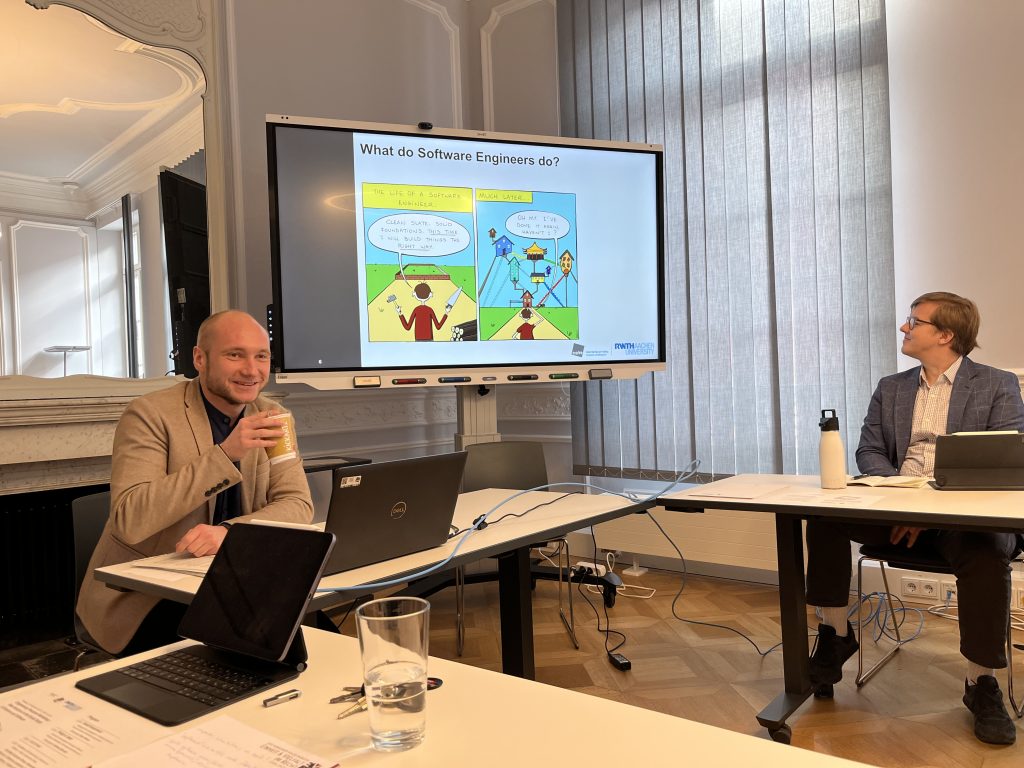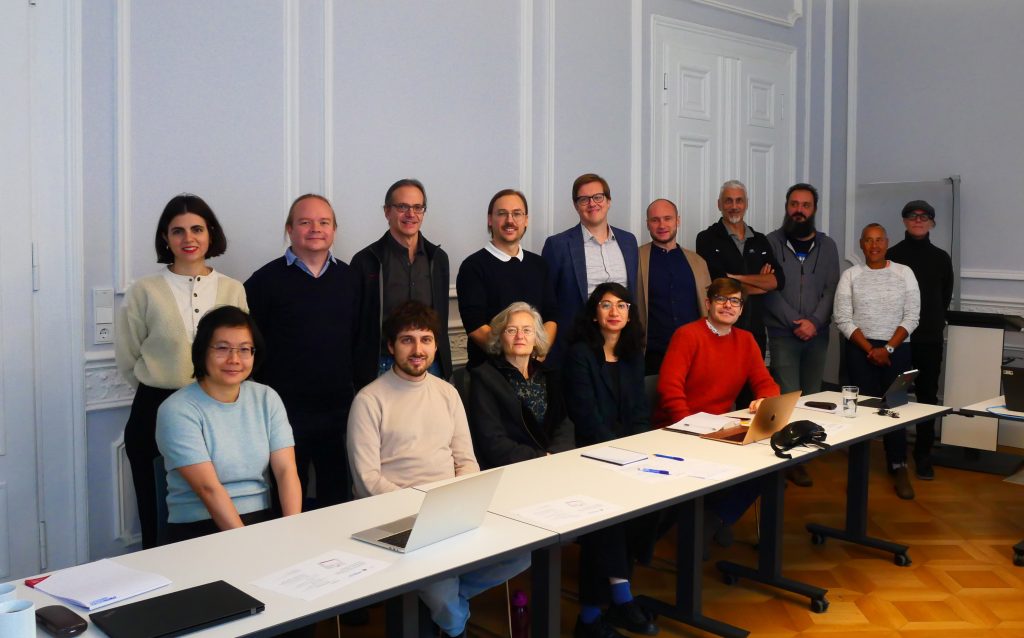Software as research culture: new study group at c:/ore, focused on software

The work that this group pursues aligns with that of the Computational Science Studies Lab, set up by Professor Gabriele Gramelsberger, Chair for Philosophy of Science and Technology (Humtec, RWTH Aachen University) and Director of c:o/re. The work of c:o/re fellow Alexandre Hocquet and his co-author Frederic Wieber on computational chemistry has been instrumental to setting the directions of this research group. An important observation by Alexandre Hocquet, through which this group is working to conceptualize software, is that software is not just code. It involves much more, being a cultural practice. Also, a critical insight came from Gabriele Gramelsberger who stated that “software is an alien”.
On November 8 and 9 the Engineering Practices Workshop: New Horizons in the Social Study of Science and Software took place at c:o/re. This workshop marks the formation of a group, within c:o/re, focused on software research. The group consists in former and current c:o/re fellows and c:o/re team members, all of whom share an interest for software studies, but coming from various angles.
The workshop started with two talks by c:o/re team members Dawid Kasprowicz on Managing the unmanageable: Is software engineering the art or science of scientific programming? and Phillip H. Roth on Scientific communication in the age of software: Sorting out materiality, community and infrastructure. c:o/re fellows Benjamin Peters and Arianna Borrelli acted as discussants to these presentations, opening then the debate to the entire group. Dawid Kasprowicz opened the question on how does scientific programming look like from a software engineering perspective, touching upon matters such as research reproducibility and the transferability software engineering knowledge. In his response, Benjamin Peters remarked that software in unmanageable in interesting ways. Analogies to previous technologies and practices are often improper, as software it is not 4-dimensional, but potentially (infinitely) n-dimensional.
Phillip H. Roth asked how doe representations of science and, consequently, science itself, too, change through technological change?
These talks were followed by a roundtable consisting in several c:o/re team members and fellows. Each tackled software from a disciplinary angle.
On the second day of the workshop, the group tried to make a synthesis of the discussion and set the ground for a position paper on software on which they are now working.



